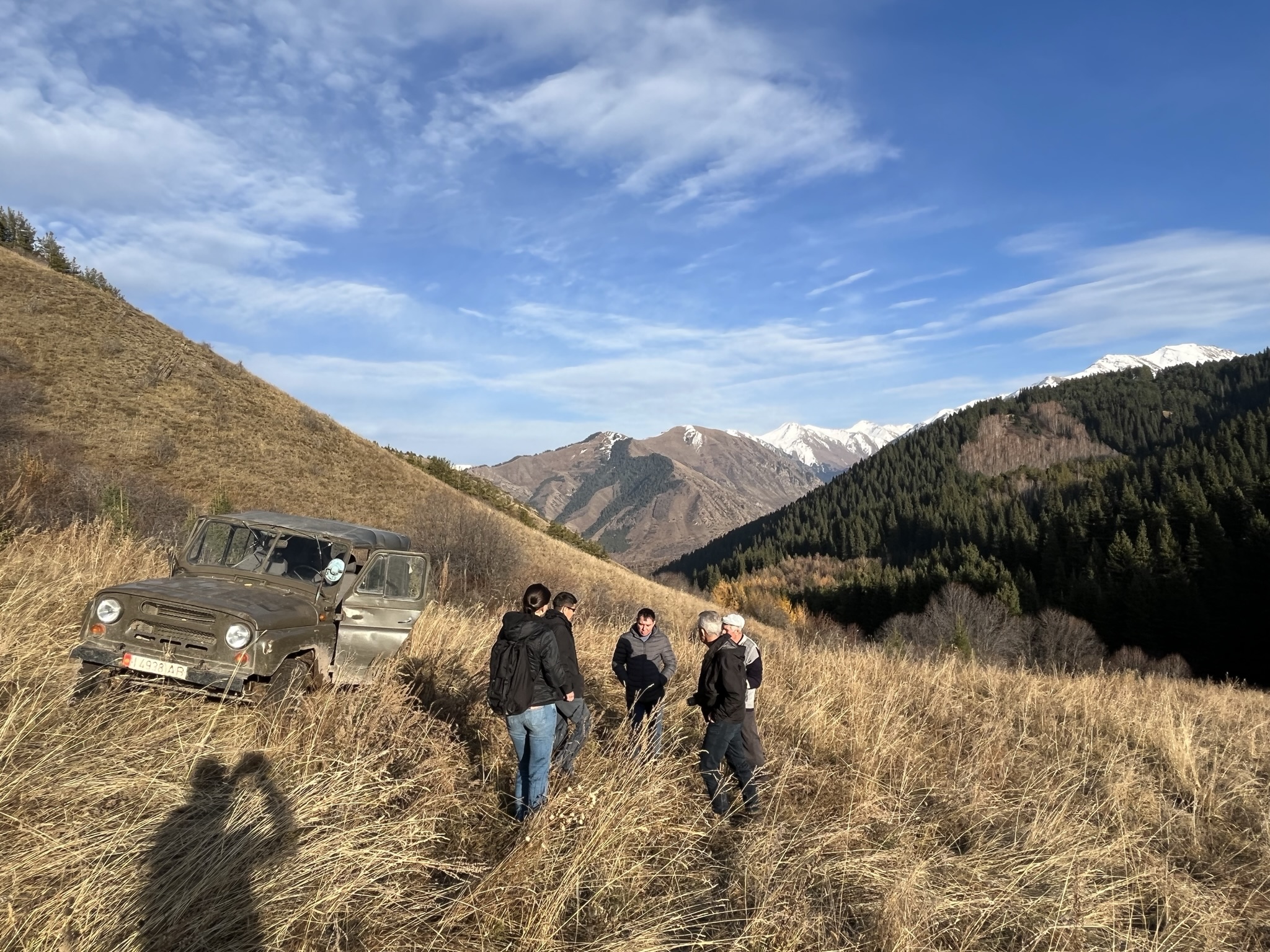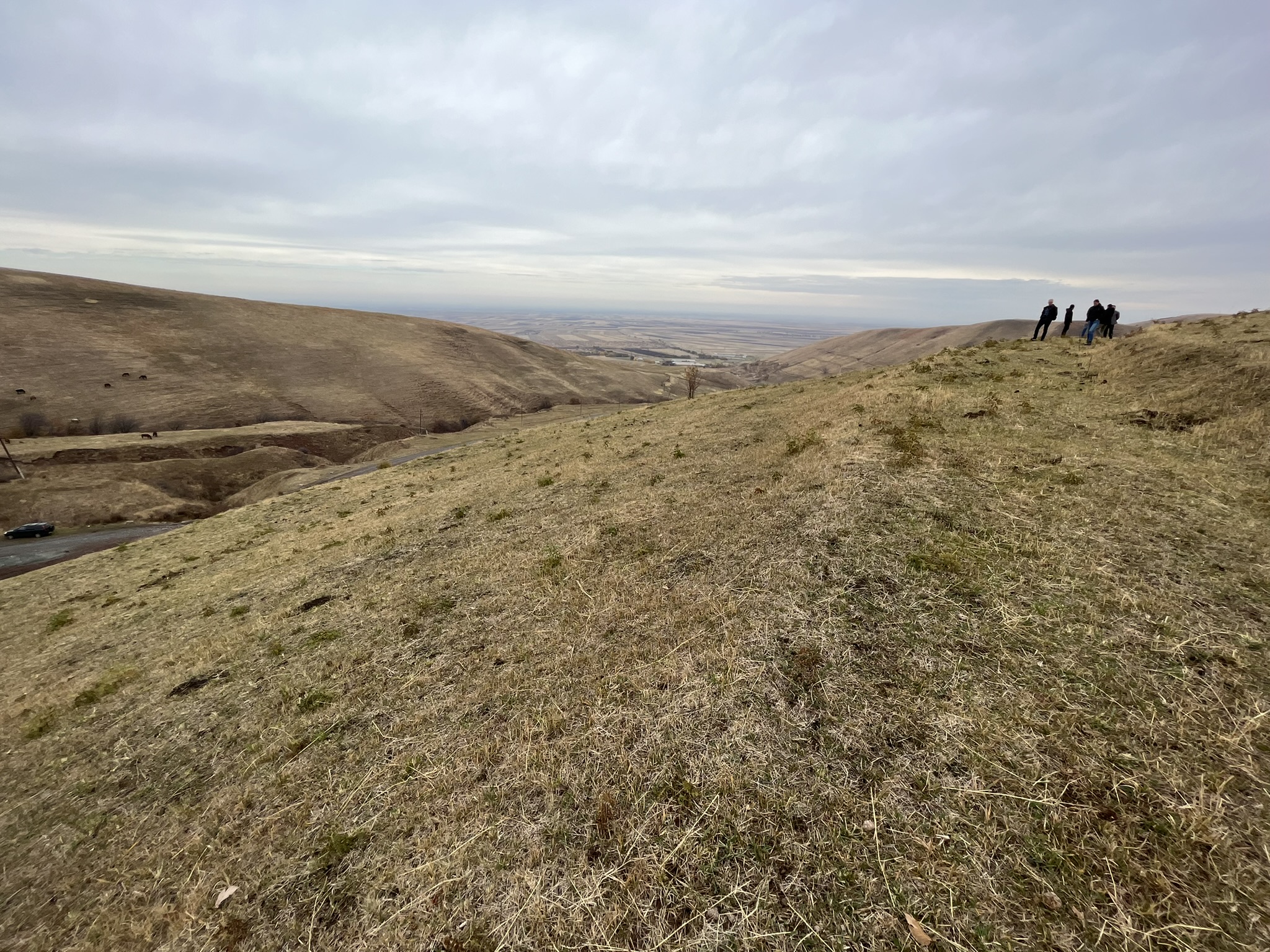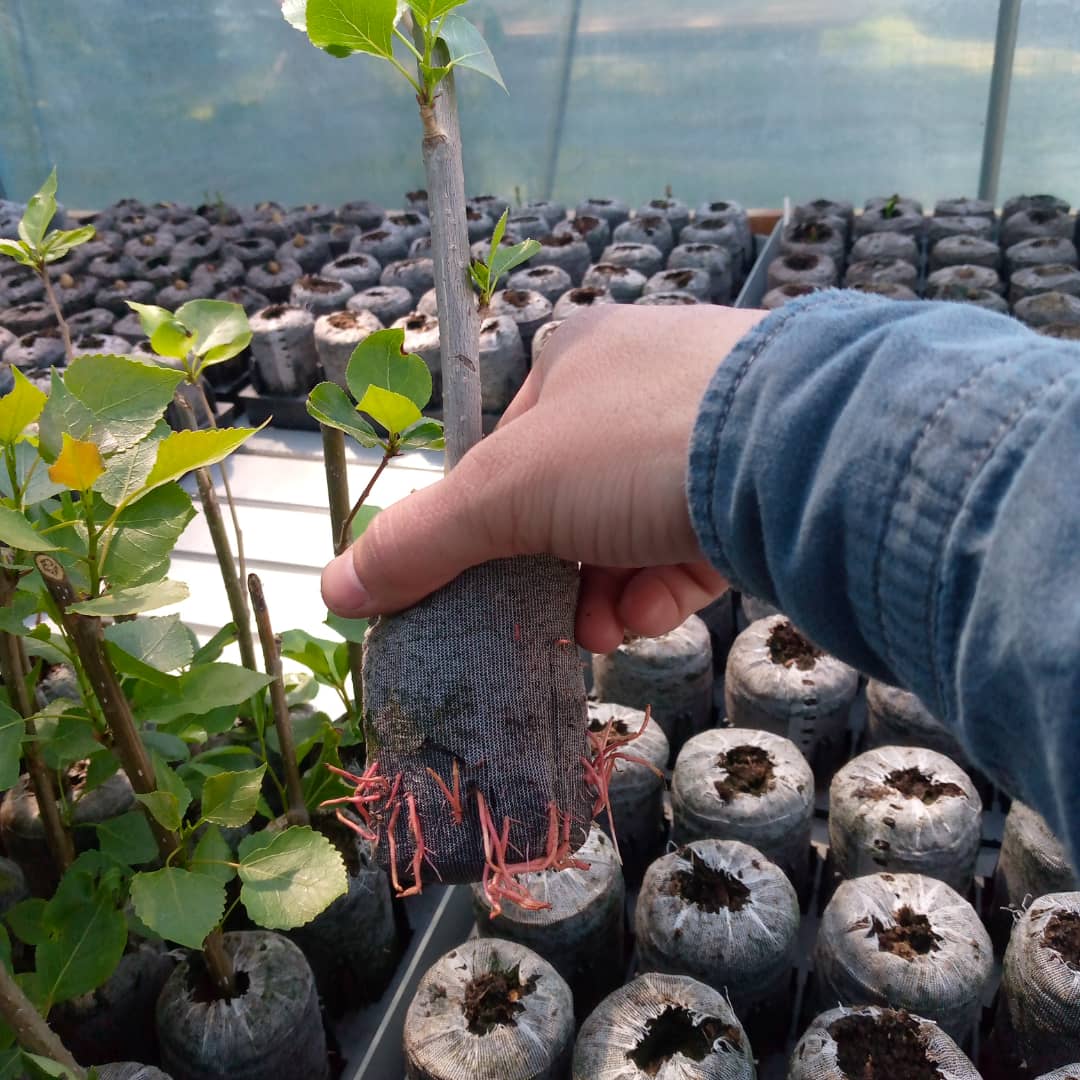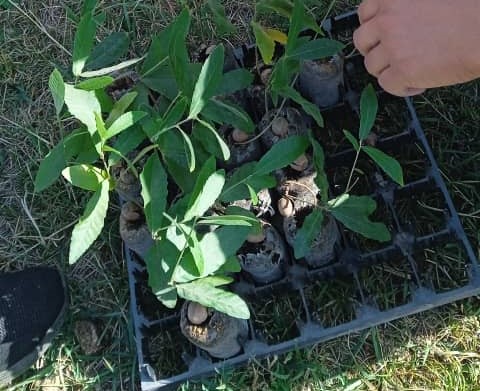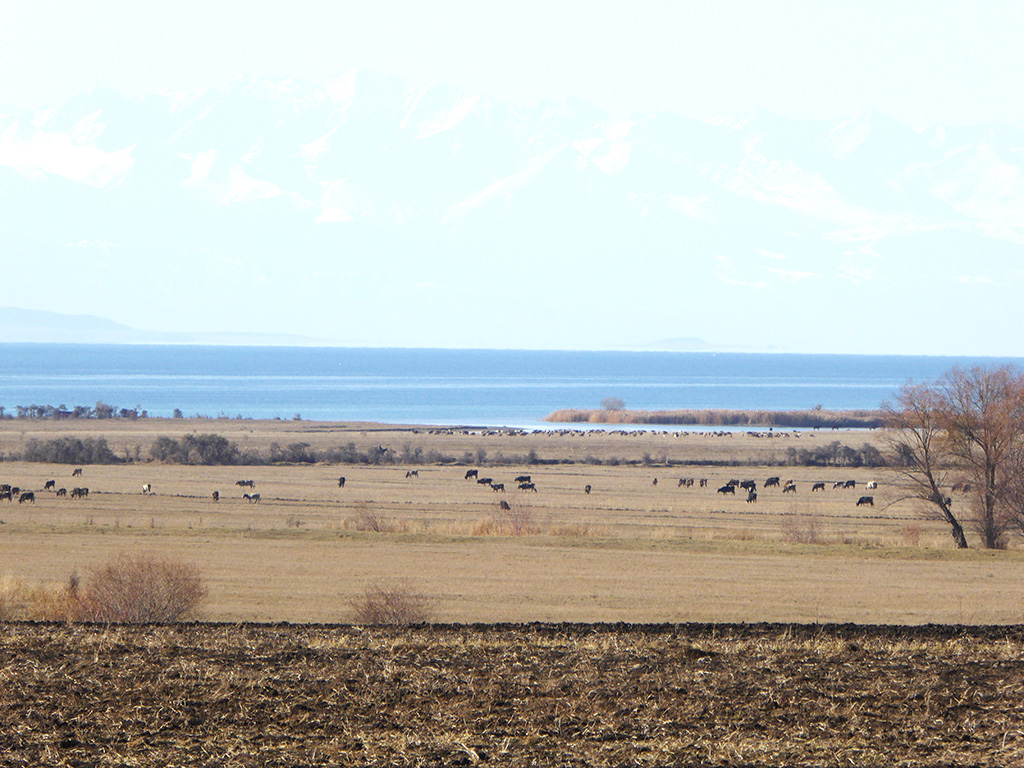
Afforestation in medium and high altitude
The present two RFFL-locations in the Kyrgyz Republic are located:
- Ak-Suu Forest Experimental Station, 400 km east of Bishkek and high elevation (> 2,000 m.a.s.l.), focus on conifer species,
- Taldy-Bulak, 90 km west of Bishkek (1,300 m.a.s.l.), focus on broadleaved species.
Photo: The Kyrgyz landscapes are highly impacted by the livestock populations – here along the high-elevation lake Issuk Kul.
Kyrgyzstan is predominantly mountainous; mountains cover 90% of the country and a low-forest country with only 4.6% forest cover.The mountains of Kyrgyzstan are water towers for many rivers in Central Asia and they are the major source of water-supply for lowlands.
The challenges for tree planting in the degraded landscapes are many and substantial:
- Free ranging domestic stock grazing
- Illegal logging
- Wildfire
- Summer drought
- Limited infrastructure and steep slopes
- Find practices that need little materials for transport across terrain
The Ak-Suu RFFL is located in an experimental forest area (1,500 hectare) owned by forest research institute in the eastern part of the country and in high altitude in the Issyk-Kul region, between Lake Issyk-Kul and the border to China. Most of the territory is already forested. On this site, grazing is limited. However, in the nearest territories, which belong to villages, cattle grazing is increasing.
The Taldy-Bulak RFFL is owned by the forest research institute, too – but located on land managed by the Jaiyl Forest District of the Forest Fund and located in the Chui region. The areas are terraced and fenced. The fence provides some but not total restriction of livestock access. The surrounding area is almost completely eroded and the grazing pressure is considered increasing in the area.
Objectives and strategies
The objectives of the strategy and goals of afforestation:
- Reduce soil erosion and mass movement
- Increase forest productivity, climate benefits, and biodiversity
- Introduce or create value chains for marketable products or services (nuts, fruits, firewood, medicinal plants)
- Create jobs in seedling production, tree planting, and plantation maintenance
The strategy has the following principles:
- Test innovative stock types with improved root systems and protection against livestock
- Choose appropriate trees for specific locations
- Evaluate economic benefits of environmental services
- Create shelterbelts with poplar and species to benefit multifunctional and sustainable agriculture
Progress so far
Identification of objectives with local partners and managers
Selection of locations and woody species for the demonstration experiments
Describing experimental treatments and designs
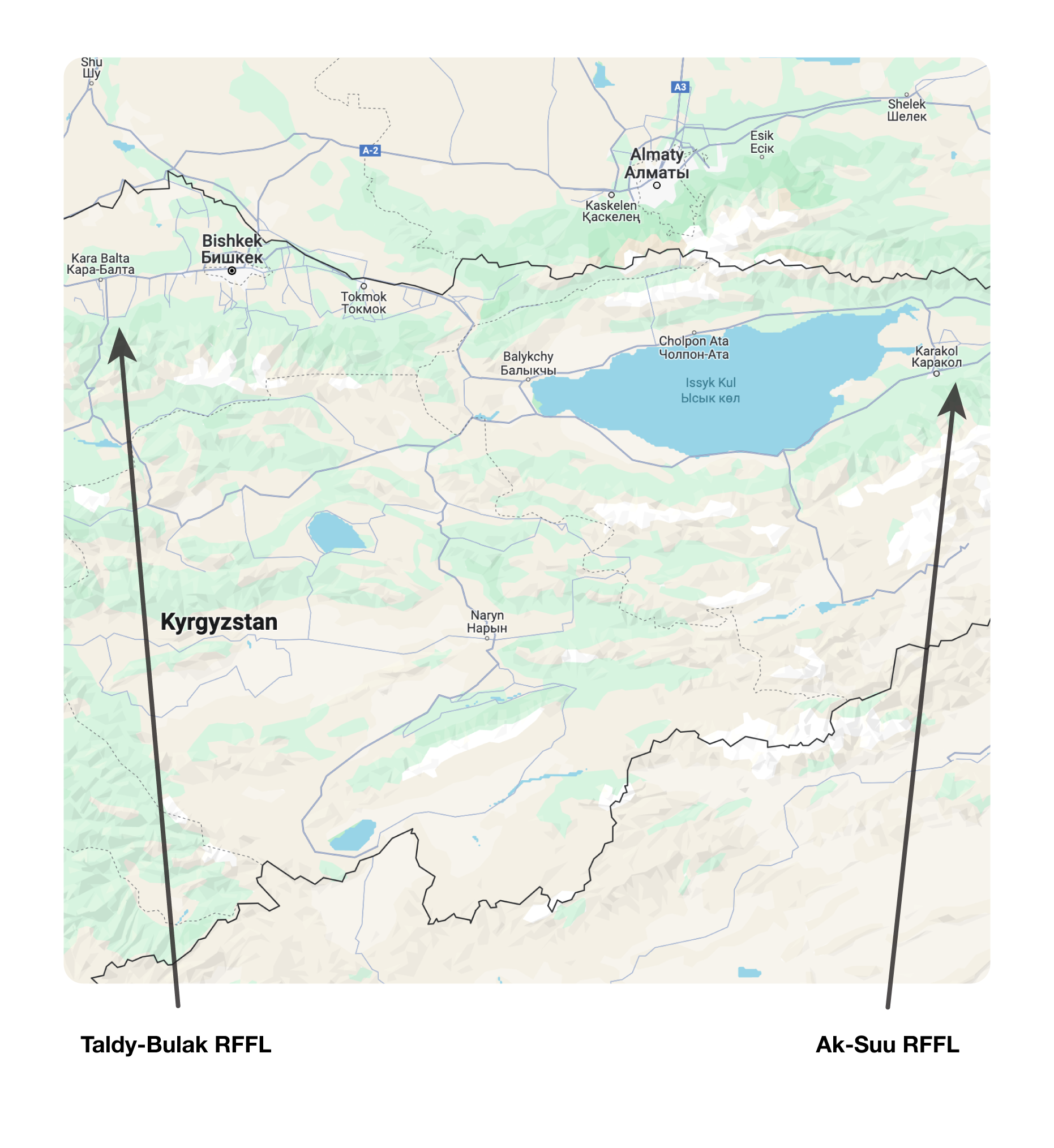
Location
Where to find us
Laboratory of Economics and Organization of Forestry
Research and Production Center for Forest Research, Institute of Biology of the National Academy of Sciences of the Kyrgyz Republic
Field sites
- Taldy-Bulak RFFL, Research and Production Center for Forest Research (42°39’29.02” N 73°56’59.19” E)
- Ak-Suu RFFL, Experimental Forest, Research and Production Center for Forest Research (42°27’24.88” N 78°30’14.18” E)
